Zambian election: Lungu’s narrow victory exposes a deeply divided country
Despite being a ‘model for Africa’ Zambia’s presidential election has been abound with controversy
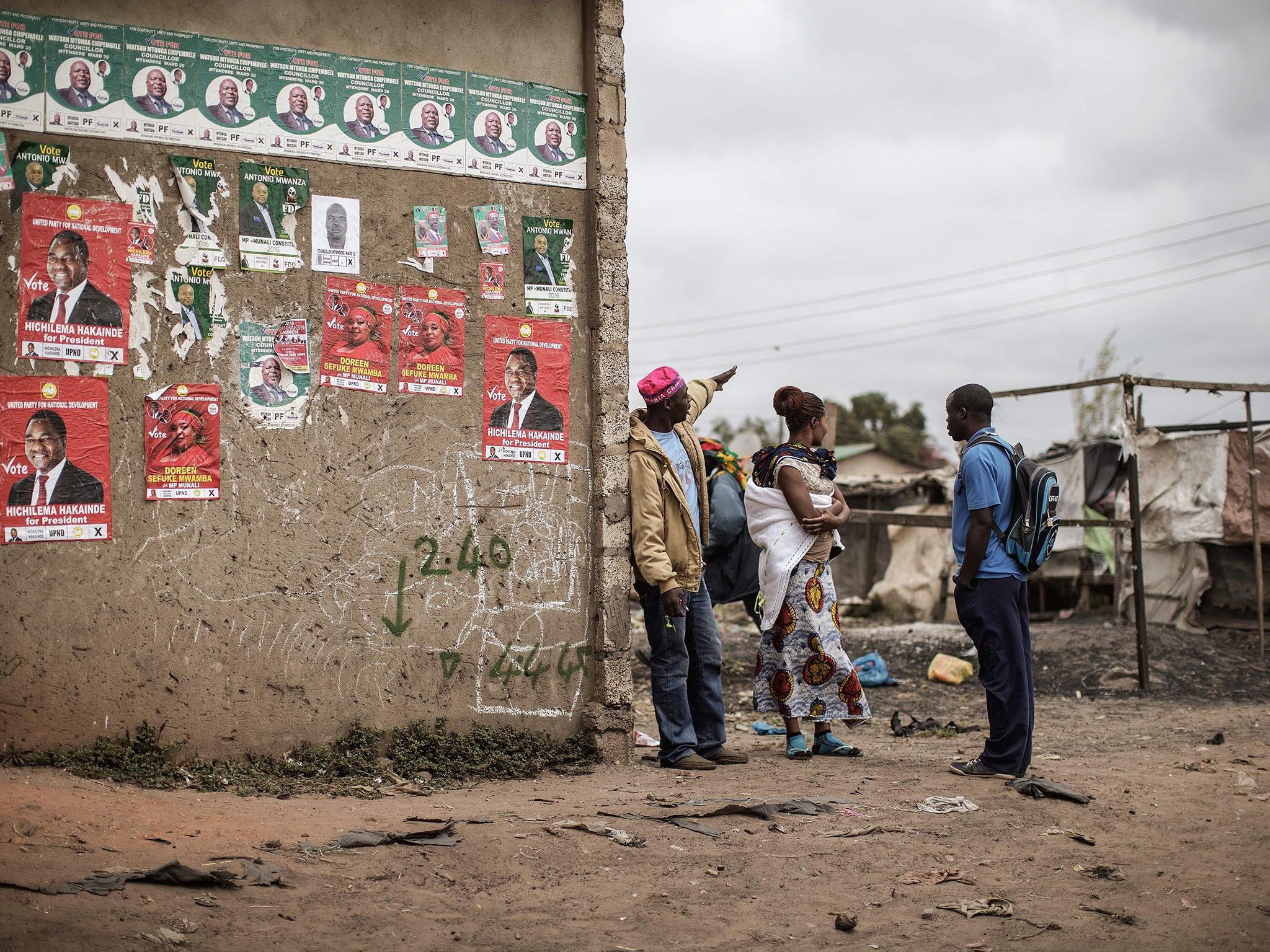
Your support helps us to tell the story
From reproductive rights to climate change to Big Tech, The Independent is on the ground when the story is developing. Whether it's investigating the financials of Elon Musk's pro-Trump PAC or producing our latest documentary, 'The A Word', which shines a light on the American women fighting for reproductive rights, we know how important it is to parse out the facts from the messaging.
At such a critical moment in US history, we need reporters on the ground. Your donation allows us to keep sending journalists to speak to both sides of the story.
The Independent is trusted by Americans across the entire political spectrum. And unlike many other quality news outlets, we choose not to lock Americans out of our reporting and analysis with paywalls. We believe quality journalism should be available to everyone, paid for by those who can afford it.
Your support makes all the difference.The announcement of Edgar Lungu’s victory signalled the end of one of the most tumultuous elections in Zambian history. The final rallies for President Lungu, leader of the Patriotic Front (PF) and his rival Hakainde Hichilema of the United Party for National Development (UPND) in Lusaka saw “unprecedented” levels of violence, UPND supporters were prevented from attending their rally – resulting in one man being shot dead. Campaign watchdogs had feared that violence would keep frightened voters away from the polls – a first for one of Africa’s most stable governments.
Last week’s vote was the first in which the victor would have to possess 50 per cent or more of the vote to form a government, leaving many Zambians fearing the ramifications of a tie, and others growing suspicious of the Government's power and the potential for rigging.
Since the announcement on Monday Zambian police have arrested 133 Opposition supporters. “Vandals targeted perceived supporters of the ruling party, destroying their property,” southern province police chief Godwin Phiri told Reuters. “It is like this was well planned and they were just waiting for the winner to be declared.”
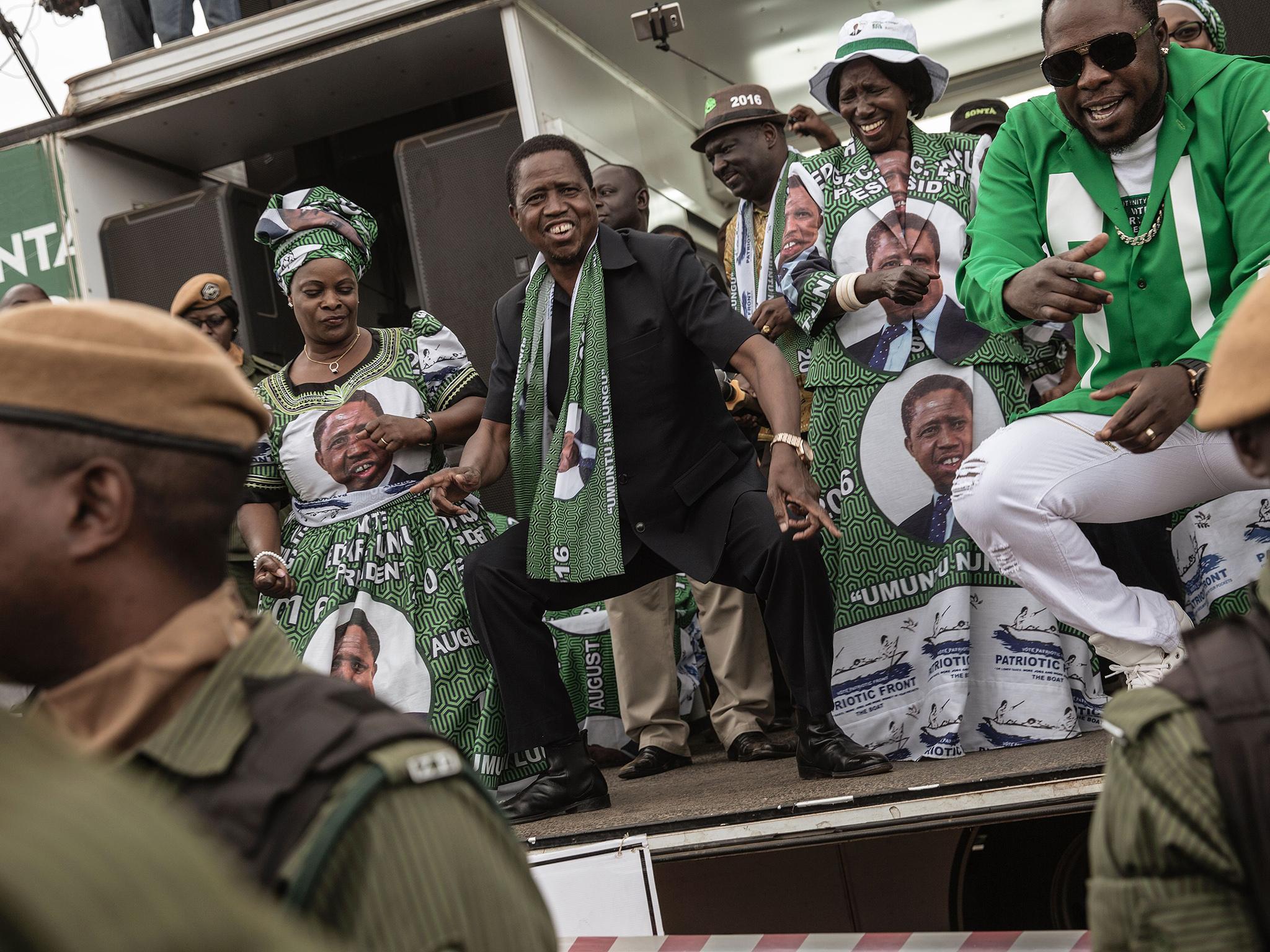
Lungu won 50.35 percent of the vote against 47.63 for Hichilema. The UPND said they will appeal the result at the Constitutional Court, accusing election officials of fraud during the count which began last Thursday. “The PF has effected a coup on Zambia's democratic process,” Hichilema said in a statement. “We submitted evidence before the declaration of the results regarding the gross irregularities that have taken place. That is why we will not accept the result.”
The Zambian people aren’t the only ones growing worried with the conduct that has been demonstrated in this election. Elizabeth Trudeau, US Department of State spokeswoman, noted statements by “many” of the international election observer missions, which highlighted concerns with the pre-electoral environment, specifically increased violence and restrictions on freedom of press and assembly.
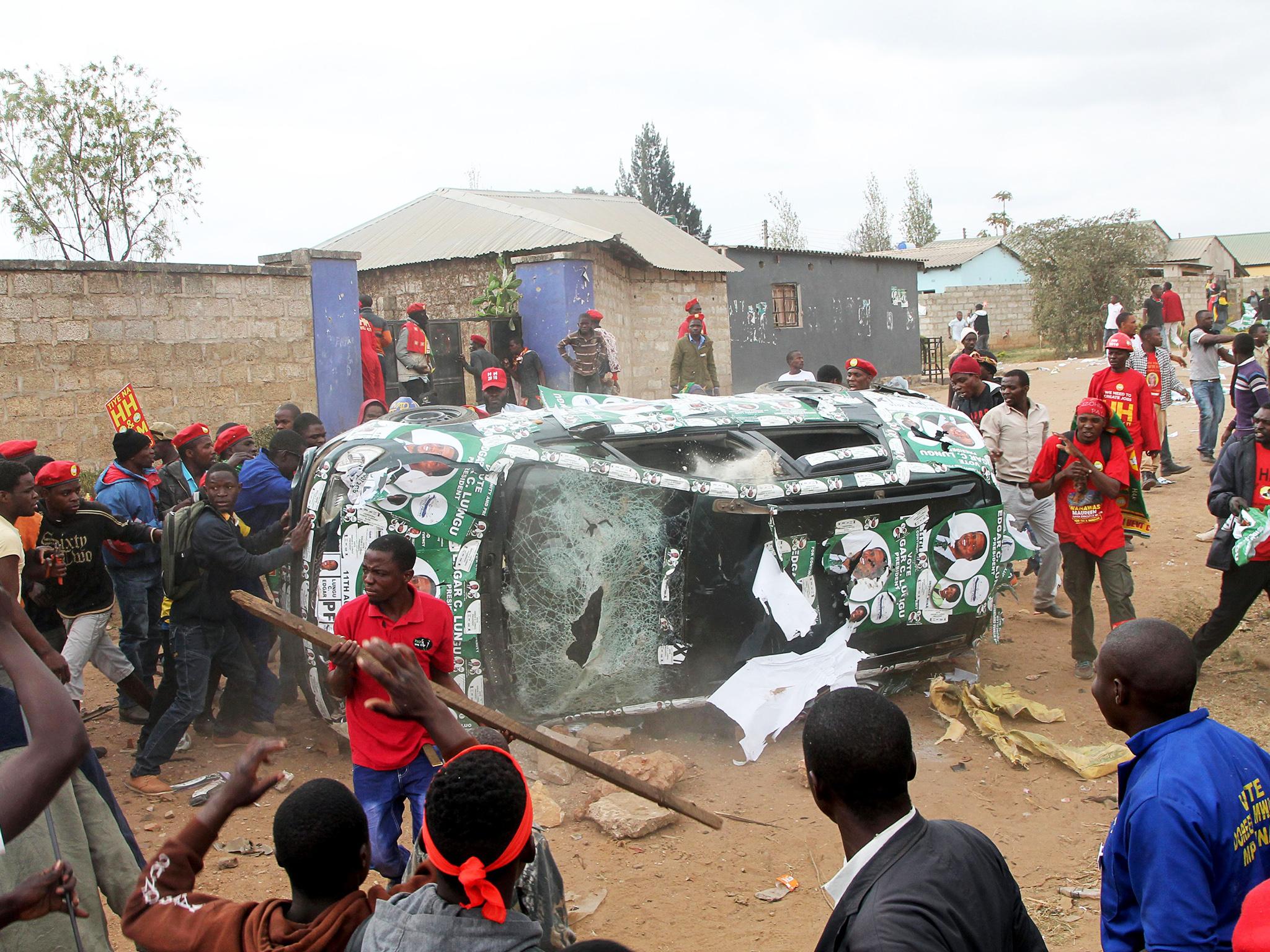
International rights groups expressed concerns over the stifling of local media after the Government closed The Post newspaper in June over alleged tax evasions worth $6m (£4.6m). The newspaper was widely known to be critical of Lungu’s government. Hichilema accused Lungu of attempting to silence his critics calling it a “blatant attempt to manipulate and suffocate any remaining free-thinking media ahead of elections”.
Chilando, 24, a mechanic on the once prosperous copper belt in the northern town of Kitwe, said he like many other young Zambians no longer see the function in voting at all: “Its not fair that the ruling party can tax fund a political campaign.”
“There wasn’t a credible person to vote for in this election. Lungu isn’t worth standing in line for, nothing has changed since he became president and nothing will change after he is re-elected. The Government we have are the same we voted out in the last election, if change actually happened I would vote but it doesn’t.”
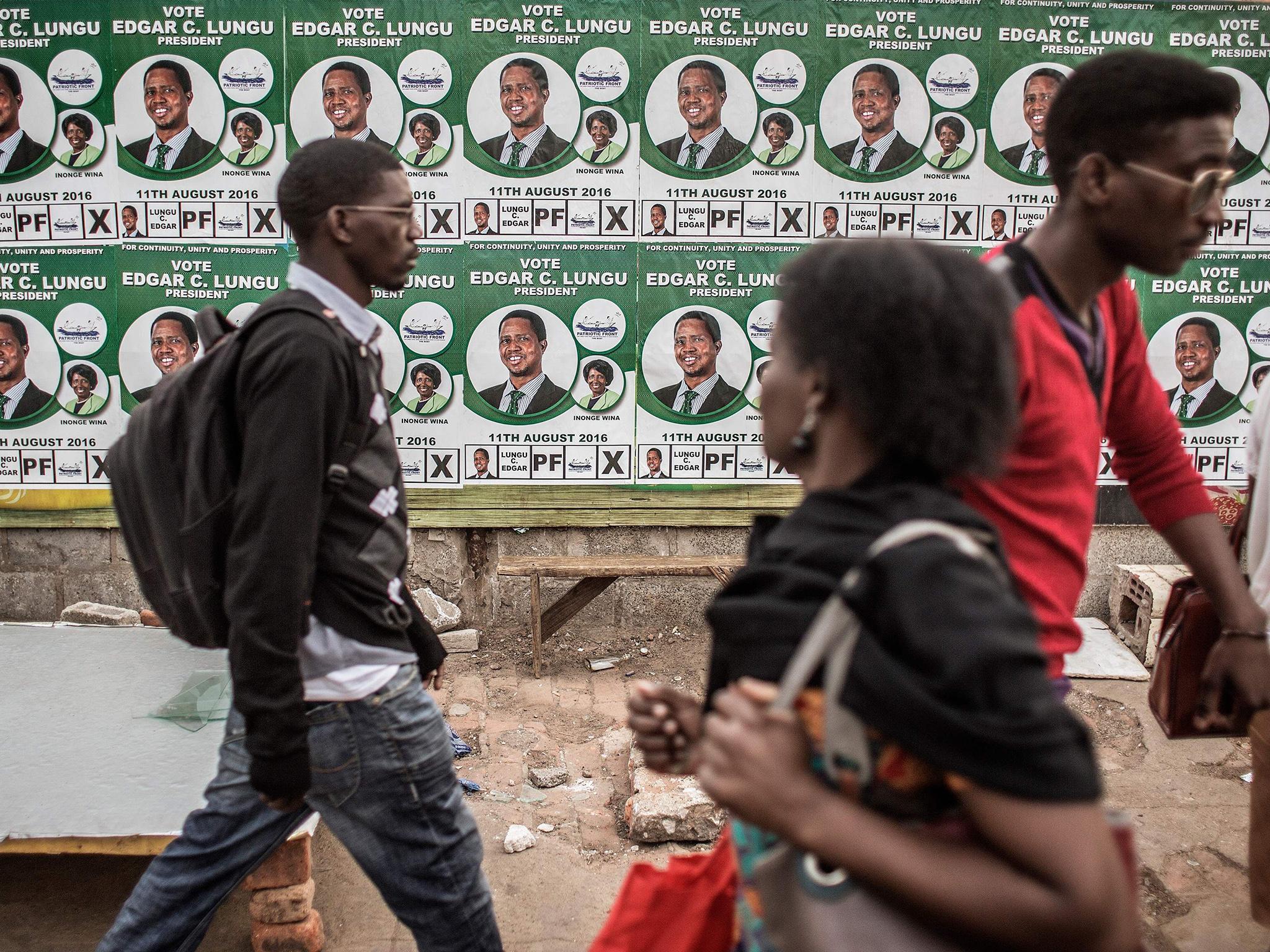
The UNPD have accused the Electoral Commision of Zambia (ECZ) of manipulating the vote in Lungu’s favour, insisting that the result should be nullified by the countries constitutional courts on the grounds of corruption. The anxiety around alleged abuse of power by the Government has led to clashes between UNPD and PF supporters in areas where there is no clear support for either party, including in the capital, Lusaka, and sections of the copper belt.
Lungu took office in 2015 after the death of the death of former president Micheal Sata, vowing the country under his rule would “banish poverty in our midst”. However, plunging commodity prices have lead to the closure of copper mines, leaving thousands unemployed and forcing the Government to apply for an IMF bailout – which could bring with it a series of austerity measures. The opposing presidential campaigns have both promised to diversify the economy and alleviate reliance on copper.
A cult of personality has continued to surround Edgar Lungu throughout the election. During this campaign “Lungu’s coming back” has become a pop anthem being played on popular radio programmes and sitting high in the Zambian singles charts.
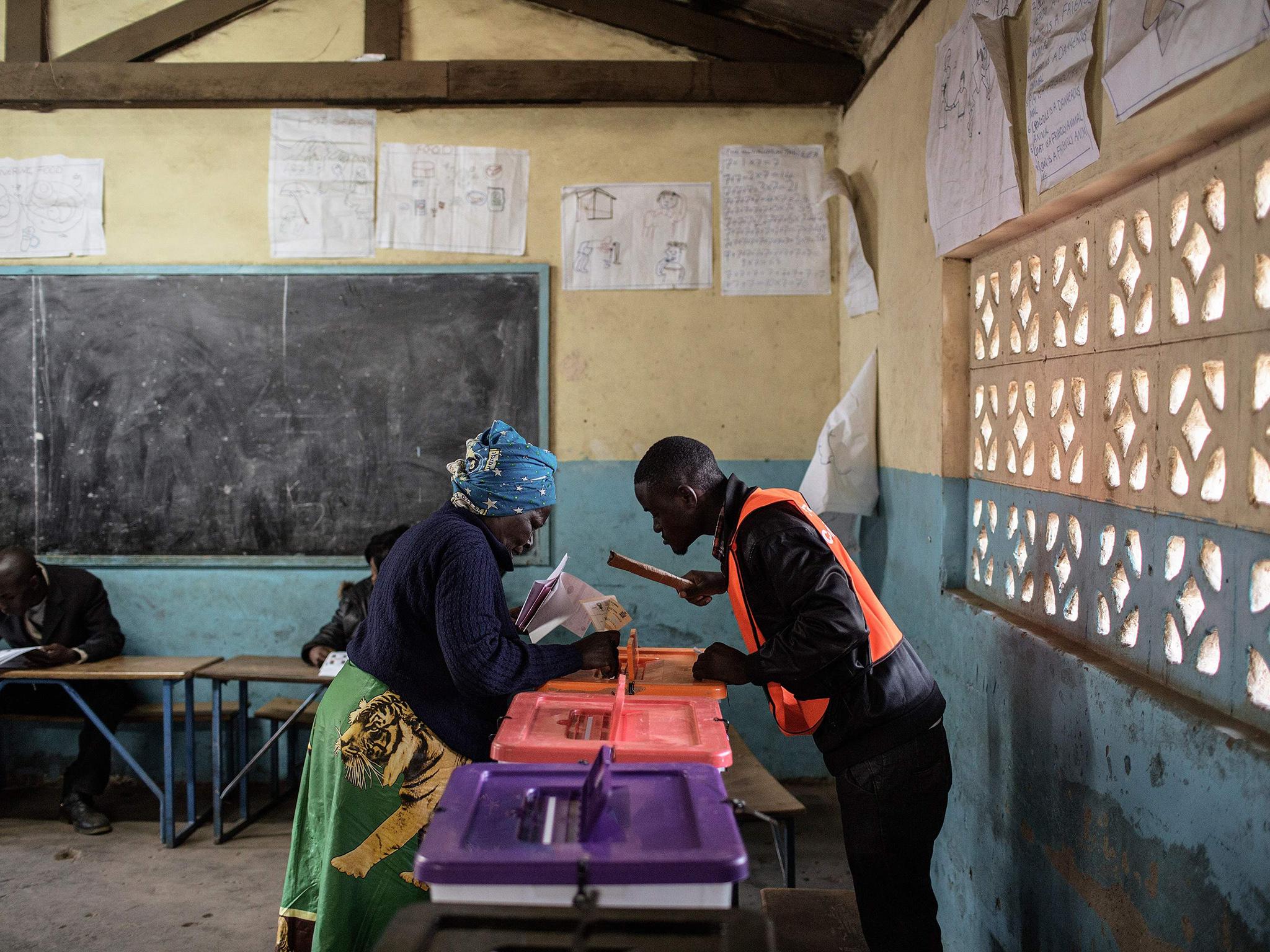
In Lusaka, young and old alike have been dressed in T-shirts, jackets and Chitenges (traditional skirts) emblazoned with the Lungu’s face. PF are even known to drive campaign vans into low-income compounds and villages to hand out free clothing and mielie-meal – a staple of the Zambian diet – covered in PF symbols as an incentive to vote for Lungu and all funded by the taxpayer.
Joseph, 23, believes corruption is too prominent within the current government for his vote to matter “relatively compared to the rest of Africa we are doing well democratically, but we have a long way to in comparison to the rest of the world. There is too much room for corruption and if the people challenge the court's nothing ever happens. I didn’t vote because I don’t think it works.”
Billboards and posters erected by both the ruling party and the Opposition have been vandalised and torn down in the capital. Lungu, warned last month that “draconian measures” would be necessary to stem the violence that claimed as many as six lives in the run up to voting last week.

Director of the Center for Policy Dialogue in Lusaka, Neo Simutanyi, told Bloomberg that the purpose of the the violence was to persuade Opposition supporters either not to vote or to vote for the Government:
“The Patriotic Front is aware that this is a close contest and the Opposition has been gaining ground and that it will be very difficult for them to retain power.
“They have resorted to heavy handedness. Radio and TV only broadcast pro-Government propaganda. It’s enough to make you think that only the ruling party is standing in the elections.”
While Lungu has repeatedly called for a peaceful vote and pledged it would be free and fair, he also warned that he would maintain order even if it meant being dictatorial, causing many to cry foul on the announcement of his victory.
When speaking to supporters of both parties it's clear that tensions run much deeper than suspicion over the ruling party’s conduct. PF’s support hails mainly from the northern and the eastern provinces – where people are predominantly Bemba, a group of Bantu peoples who trace their origins to the Congo basin. UPND has seen far more support in the southern and western provinces with heavier populations of people with Tonga origins. For many in these areas the ruling Government’s links with Bemba mean that they are sidelined and receive less state funding and support than those loyal to Lungu.
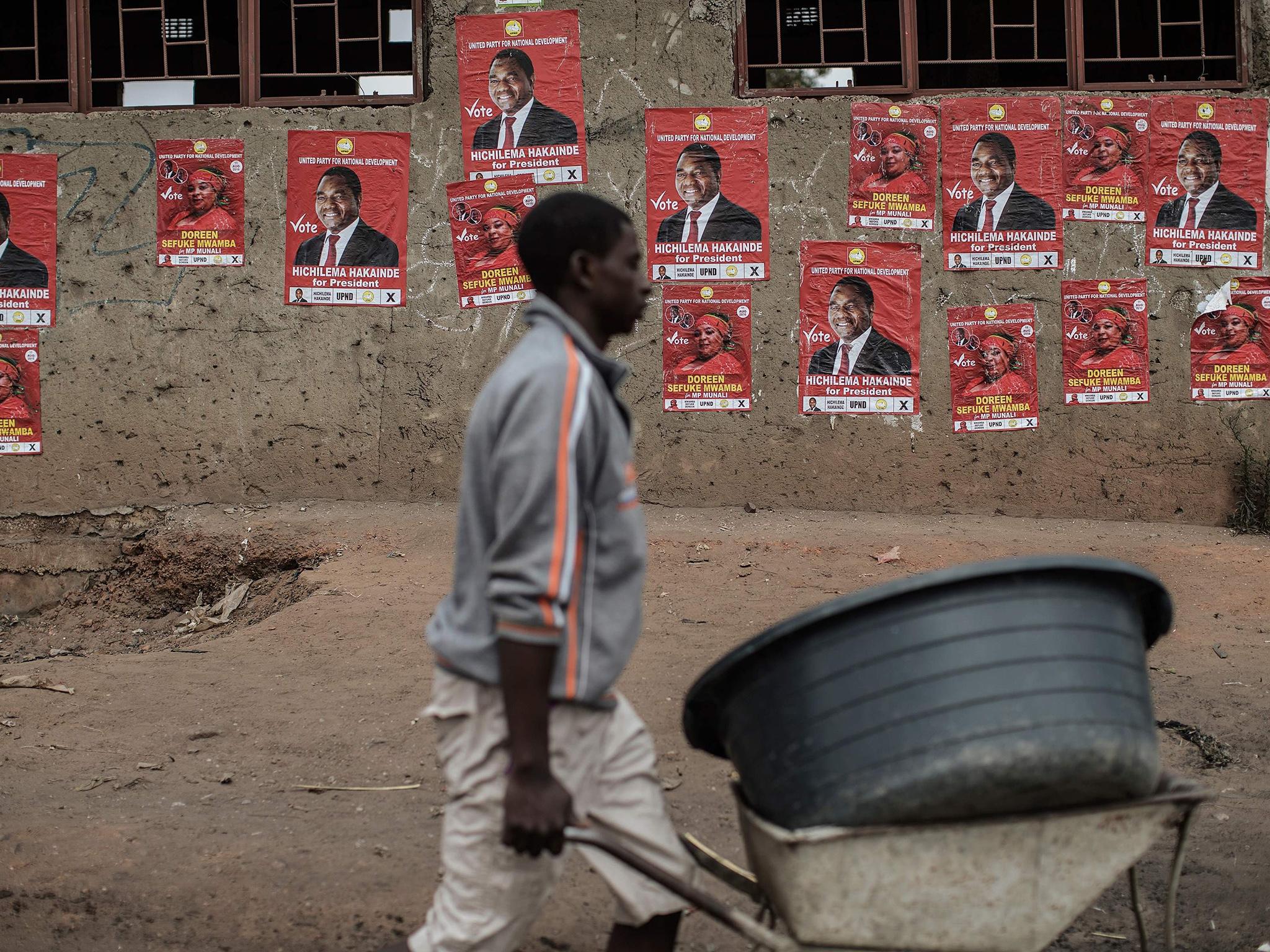
Vencil however, who voted for UPND, believes tribalism in politics doesn’t exist in younger generations: “Tribe plays a huge part, especially in older people. You have UPND who will get votes simply for being Tonga – but young people are less likely to vote based on their tribe and more on Zambian. Older people remember what it was like to be a tribe and nothing else – some of them remember a time when Zambia didn’t exist. For us we just see Zambia and we want change.”
Daniel, who is currently working in northern Zambia but hails from the south insists, the young have a role in healing this rift: “The young people are only coming to realise that everything revolves around politics in this country – this was the highest voter turnout in quite some time. Ordinarily young people see it as a waste of time and just accept the status quo of whoever wins. But we’ve seen a big rise in smaller parties such as the Rainbow Party.”
Join our commenting forum
Join thought-provoking conversations, follow other Independent readers and see their replies
Comments